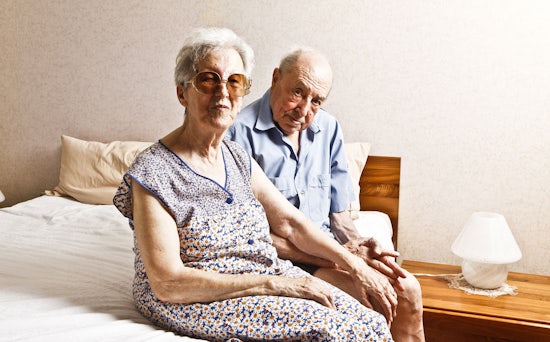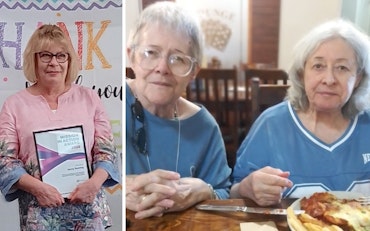Partners want to stay together in aged care
Aged care providers should rethink how they accommodate
partners in their facilities and start offering shared rooms with double beds
to partnered residents to satisfy future consumer expectation, a University of
New England researcher says.

Research shows baby boomers want to sleep in the same room and bed as their partner (Source: Shutterstock)
“I think it is time to investigate whether the present
culture in residential aged care is suitable for the next generation,” says
Ph.D. Candidate Alison Rahn from the School of Behavioural, Cognitive and
Social Sciences.
She says most aged care facilities don’t allow partners to
share a bed or room while research has shown this could impact on people’s
health and wellbeing.
“Research shows for most people, sleeping with a partner is
a social activity and when their partner is not there they can’t sleep
properly.”
Ms Rahn says people can become withdrawn or display
challenging behaviours if they are deprived of loving touch.
168 baby boomers participated in an online survey and 29
aged care workers were interviewed as part of her research.
The outcome showed baby boomers want to sleep in the same room and bed as their partner and for them to be
provided with as much privacy as possible.
About 50,000 aged care residents are married or in a de
facto relationship, and partners make up about 35% of new admissions into aged
care facilities.
Speaking on a local radio station recently Ms Rahn explains
a lot of the current situation has to do with government funding.
“Federal funding is quite restrictive,” she says. “Many
facilities budgeting arrangements are not sufficiently flexible to allow
another person to come into the room without government funding coming in for
that person.
She tells of couples wanting to enter a facility together
but this being prevented because of limited funding or lack of space. Couples
that did manage to find a place in aged care together where often discouraged
from being together.
“Sleep is essential for good health. For many people who
have been in a long term relationship are so comforted by the presence of their
partner, that the absence of that partner causes great distress, interrupted
sleep and health can decline quite rapidly in that situation,” she says.
Ms Rahn has spoken about the need for management and staff
give couples the privacy to conduct their relationships in bed however they
wish.
“Some people welcome some space from their partner after
all those years together but for those who do want to maintain that closeness
it is actually very challenging for them.”
She even calls partners an overlooked resource for aged
care providers. “Partners often look after each other and they’re actually
reducing the need for staff to look in on them.”
Very rarely partners have the same health needs at the same
time and most couples are separated by one of them going into care and the
other one remaining in the family home.
“For many it’s extremely distressing, after so many years
together, to be separated from the person they love,” Ms Rahn explains.
“We need to rethink what services we offer older couples.
The current system suits singles reasonably well but it doesn’t suit couples at
all because it doesn’t take into account their relationship.”










